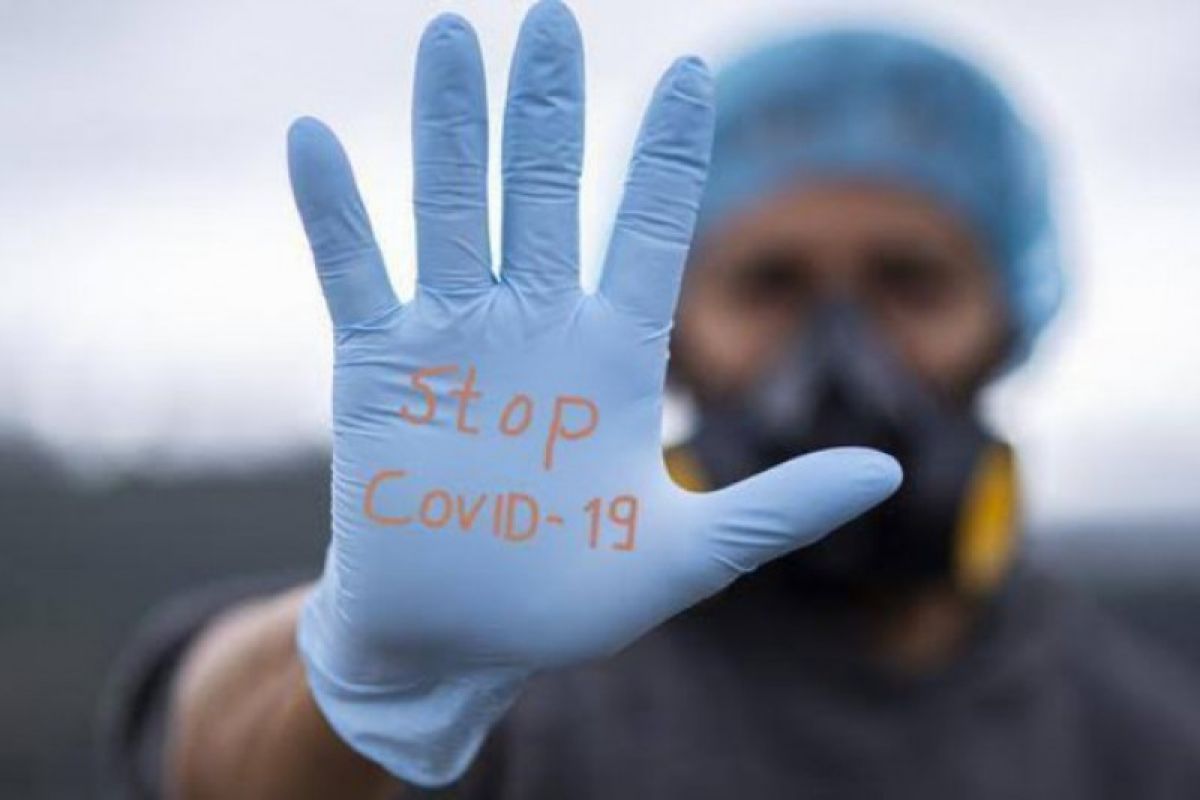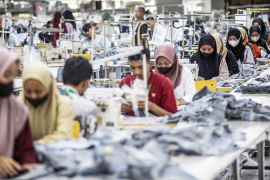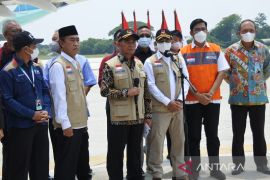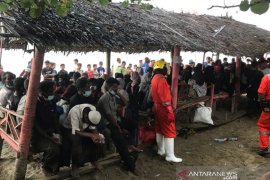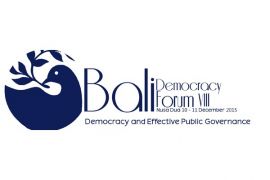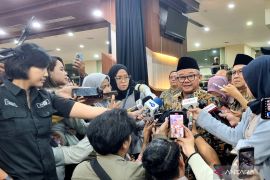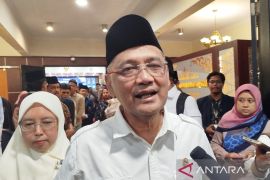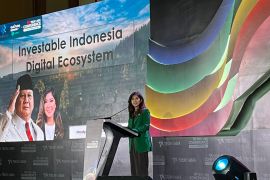The government could not fight alone against the pandemic, especially to recover the nation if the people do not come forward to help.
Unfortunately, people tend to view the handling of the pandemic and public health issue in general as state-centered affairs, Centre for Strategic and International Studies' (CSIS) Researcher Alif Satria stated.
For instance, the policy to implement the public activity restriction (PPKM) often receives backlash.
However, after the public became willing and started adhering to the PPKM regulation, Indonesia has managed to control the spread of COVID-19 and become one of the best performing countries in terms of handling this pandemic.
Based on this example, it can truly be seen that the people's cooperation is instrumental in realizing the government's policy, especially concerning the handling of the COVID-19 pandemic.
However, what is often overlooked is the huge role that civil society organizations play in helping the government to encourage the people in implementing its policies.
Satria noted that civil society organizations play a crucial role in handling the COVID-19 pandemic, especially local civil society organizations.
There are several initiatives that come from local civil society organizations, which are more localized and play an important role in providing public services during the COVID-19 pandemic.
Examples of this service are providing information to the people at the grassroots level to offering service in the form of health facilities.
In addition, Satria noted that civil society organizations tend to be faster and more efficient in responding to the crisis because they are based on the spirit of volunteerism, non-profit orientation, and strong coordination model.
To this end, he believes that civil society organizations could provide greater contribution to the formulation of the COVID-19 policy than the government.
With this in mind, what exactly civil society organizations do and what collaboration model do they apply with the government?
Civil society's types of activities
The CSIS researcher divided civil society organizations' activities in pandemic handling into three categories: activities in education, activities in service providing, and activities in advocacy.
Civil society's activities in education are usually realized through content creation in social media and brochures concerning health promotion during prayers, much like what has been done by the Muhammadiyah Disaster Management Center (MDMC).
Moreover, civil society organizations could create public portal data, such as kawalcovid.id, to disseminate information to the public.
Satria noted that the creation of a data portal by civil society is faster as compared to the creation of a data portal by the government, specifically the COVID-19 Task Force site.
Various civil societies also often hold webinars that involve various stakeholders concerning COVID-19 that allow for a two-way interaction between the speakers and the audience.
Thus, the people can pose questions concerning unclear information and obtain info related to COVID-19 that they truly need.
The other category is service providing. Satria informed that civil society organizations often assist the government in providing health service equipment, such as disinfectants and protective equipment, especially masks.
In addition, several civil societies are involved in the creation of basic infrastructure that is crucial during the COVID-19 pandemic: hand washing stations, waste processors, and self-isolation spaces.
Furthermore, several civil societies provide family micro-financing service on the account of the economic difficulties that several households encounter due to the COVID-19 pandemic.
Several corporations that conducted budget efficiency and had to close down were causal to the rise of unemployment in Indonesia.
Satria believes civil society organizations often conduct three types of advocacies.
These are cooperation with the regional government, participation in the discussion forum with government institutions, and conducting research and providing policy recommendation.
"Civil society's activities often become the foundation for the government's policies," he affirmed.
Relation between civil society organizations and the government
Considering civil society's strategic role in COVID-19 handling, it would certainly be beneficial if the government conducts cooperation with various civil society organizations to make the programs that they planned a success.
However, the relation between civil society organizations and the government is not limited to cooperation.
Several civil society organizations decide to act independently that are driven by numerous factors, such as unwillingness to be entangled in state bureaucracy to wishing to be independent from the government.
This civil society organizations-government relation is a form of independent relation.
There is also another form of relation, specifically competitive relation. This relation could occur when the two parties compete to gain legitimacy in the eyes of the public, and they have a different program design.
The advantage of this relation is that the government and civil society organizations compete with one another to produce a better program than the other party that benefits the public as the recipient.
According to Satria, each of these relations have their own negative impacts.
For instance, in a cooperative relation, civil society organizations run the risk of being dependent on the government.
Meanwhile, for an independent relation, having each actor work separately could potentially reduce the program's effectiveness.
Lastly, the negative impact of competitive relation is that it would possibly cause an overlap between the government's program and civil society organizations' program.
While the ideal relation would be cooperative relation, the government should take precautionary measures, so that civil society organizations would not be overly dependent on the government.
Cooperation could also reinforce the handling of the COVID-19 pandemic in Indonesia and allow it to perform the best that it could.
To this end, the involvement of civil society organizations comes as a breath of fresh air for the government to attract more support from the people in implementing various COVID-19 pandemic handling programs.
Related news: Need stricter security at borders to prevent Omicron spread: VP
Related news: Omicron more contagious, not detected by PCR tests: BRIN
Editor: Rahmad Nasution
Copyright © ANTARA 2021
